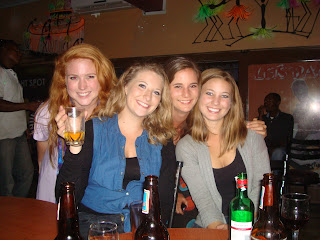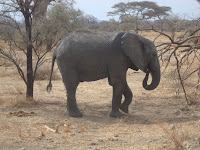I
went on a safari to Lake Manyara and Ngorongoro Crater this weekend! Both areas
were much different from Tirengire, the other safari I went on.
Lake
Manyara is much denser with trees and vegetation. Although this made it
difficult to spot a large variety of animals, it was the perfect environment
for BABOONS!! We saw sooo many baboons. They were cool. It’s scary how
human-like they are though…
Ngorongoro
Crater had all kinds of land! – Grass-land, swamp-land, dry-land, wet-land,
forest-land, and lakes. So needless to say the crater is home to a lot of
different animals. I saw zebras, wildebeest (aka gnus), buffalo, hyenas,
jackals, warthogs, flamingos, lions, hippos, rhinos, elephants, gazelles, and
hartebeest!
One
of the coolest things I saw was a couple of lions feasting on a zebra. Don’t
get me wrong, zebras are my favorite animal, but I got to see the “circle of
life” in action!! During the lions’ meal, their audience of both tourists and
other animals grew and grew. Their animal viewers consisted of the nasty
scavengers: hyenas, jackals, and vultures. The lions had to constantly scare
these animals off so they could enjoy their zebra alone. Once the lions lost
interest in the zebra, they started to let their guard down and the scavengers
went in for the leftovers. We saw one hyena that snatched a zebra leg and ran
away with it while the lions’ backs were turned, and by the time the lions
spotted the thief he was long gone. The whole crew of hyenas laughed
hysterically!! So bizarre… it’s like they really do have a sense of humor.
There
were Maasai men herding their cows inside
the crater!! But don’t worry, they rub a special solution on their skin to
fool the lions into thinking they are animals (even if this does work I don’t really
see how it protects them since lions do in fact eat animals).
It’s
kind of hard to get a grasp on this country when you see so much beauty in it
but know that it’s plagued with social, economic, political, and public health
issues. The solutions aren’t any less complex.




































